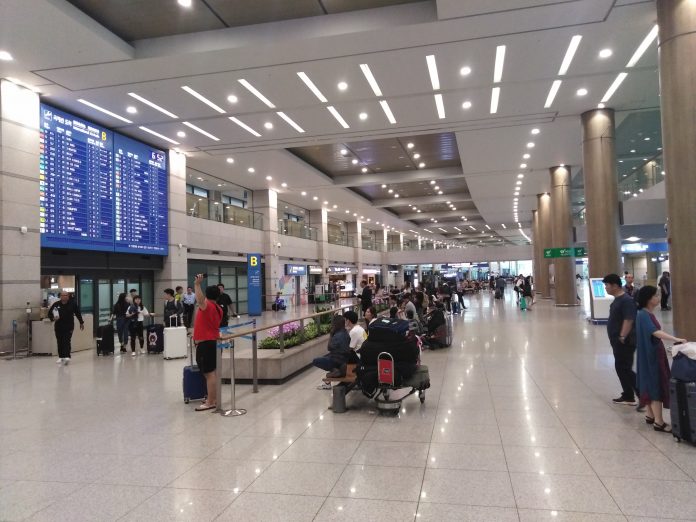It is 6.20am. The flight to Incheon, Korea has just landed. The airport looks and feels almost like Singapore’s Changi Airport, with just one exception. Rather than the English language that one would predominantly see back in Singapore, everything was in Korean language. Almost everyone was speaking in Korean, the signboards, the passenger announcements and even the immigration officer attending spoke in Korean before murmuring in English, “study… KAIST?” as what I managed to make out of what he said. Well then again, given that this is Korea, this shouldn’t be surprising. But of course, I wondered how would I be able to explore Korea and KAIST these 4 weeks without being able to comprehend Korean, beyond just the simple phrases of 안녕하세요 (hello) and 감사합니다 (thank you).
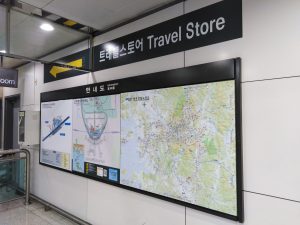
It is 2.00pm in Daejeon, Korea. I had just arrived in KAIST for the 4 weeks KAIST International Summer School Programme (KISS). The security guard smiles at me when I drag my luggage into the campus- a good first impression I have of the school. Arriving some time later at the hostel to check in, the block supervisor emerges from inside his office. He appears stern but despite his inability speak English he does his best to assist me to check in, helping me to navigate to my room and indicating that the door requires a password. The KISS student buddies, which we were to meet later in that day, were the first people in Korea I had interacted with that could speak fluently in English, a good break from having to use google translate and hands signs to communicate. Surprisingly, some of the student buddies came from places like Ethiopia or Indonesia to study in Korea, a place with a vastly different language and culture.
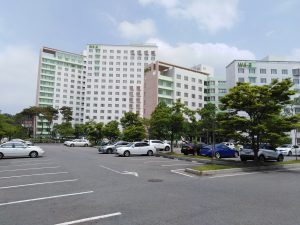
It is 6.00pm, dinner time in Cheongju, Korea. I wondered into a Korean Kimbap restaurant after studying the menu from outside. The rudimentary Korean that I have learnt in back in KAIST had actually helped me understood at least what was being served in the restaurant. I google translated what I wanted and showed to the Ajumma serving inside, before taking a seat. The tuna Kimbap that I ordered soon arrived and sensing that I was new and unaccustomed to eating in Korea, she showed me where the chopsticks and spoons were. She also served me danmuji (pickled radish) and soup (which I later understood to be side dishes and generally self-serviced). During the meal, when the danmuji was consumed finished before I was done with the kimbap, she went to refill it and signalled most likely to say that I could refill if I wanted more. By the end of the meal, hardly a word was spoken between me and the Ajumma yet I somehow was served and satisfied.
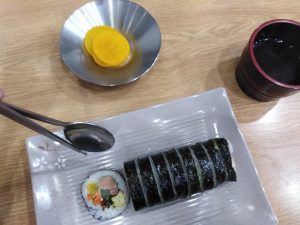
It is 8.00pm in Cheongju, Korea. I boarded a bus to travel to Cheongju train station to return to Daejeon. Unfortunately the T-money card reader (equivalent to the Ez-link card) had indicated that I ran out of money. An Ajumma then stepped forward to seemingly offer to pay for my ride, she insisted, but I had cash on hand to pay so I thanked her but rejected the offer by waving to say no. As the bus rode on, I was about to miss my bus stop when the bus driver jerked the bus and pointed to me that this was the Cheongju train station bus stop even without me saying that this was the place I had intended to alight. This was all the more surprising when I had experienced how Korean bus drivers tend not to slow down at bus stops and the “bus stopping buzzer” must be pressed way ahead of time.
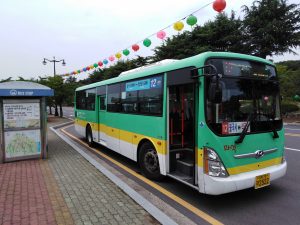
So what was it like exploring Korea without being able to speak Korean? It was the people here that was what made it possible. They made an effort to communicate and help a stranger without being asked to. This effort didn’t even have to be verbal but yet without which exploring Korea would have been all the more harder and inconvenient. I am certainly impressed and I look forward to the other weeks to come in Korea.




















